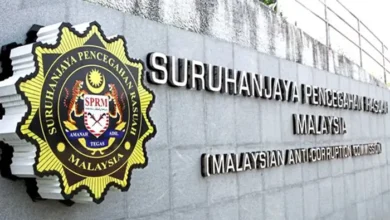‘Stability’ a false dawn and investors can see it, say experts

PETALING JAYA: The emergency proclamation seems to have provided a hint of political stabiliity and some relief for the markets, but economists believe investors will see through the government’s rhetoric and realise that the so-called certainty is manufactured and temporary.
During his announcement on Tuesday, Prime Minister Muhyiddin Yassin had assured stakeholders that Malaysia would remain open for business during the emergency, set to last until Aug 1 or until the number of cases fall and stabilise.
“This period of emergency will give us the much needed calm and stability, as well as enable us to focus on economic recovery and regeneration,” he said.
However, Mydin Ahamed Kameel Mydin Meera, former dean of the Institute of Islamic Banking and Finance at the International Islamic University Malaysia, said that despite what the PM said, “an emergency is surely not a sign of stability” for investors.

“Investors are intelligent people, they can see through what is going on in the country,” he told FMT, adding that many will realise it has little to do with the pandemic.
Investors will already be taking a longer-term view and looking past the emergency, making assessments based on what they think will happen next, not just the present situation.
Muhyiddin should resign over emergency fiasco, says Umno leader
Shankaran Nambiar of the Malaysian Institute of Economic Research said that while stability was once one of Malaysia’s selling points to foreign investors, the “political incertitude” that has plagued the country of late has stripped Malaysia of this key selling point, and many will see this emergency bringing only fleeting stability.
“The current emergency may stave off the problem of instability for the moment, but for how long?” he asked, saying that it was clear over the last few weeks that Muhyiddin’s majority – if he even has one any more – is increasingly tenuous .

“Even after GE15, whenever it is held, it is not clear if we will have one party with a clear and solid majority as was the case with Barisan Nasional.”
“Who knows, for the next decade we may not have the certainty of political continuity,” he said.
Academy of Sciences Malaysia fellow Madeline Berma said that even if some investors buy into the stability brought by the emergency, there are still many negative effects that could cancel out any benefits of the proclamation.

“The emergency itself will lessen any appetite of multinational companies (MNC) to invest. Combined with other factors such as weaknesses of SMEs and other domestic private investors, and the increasing competition for foreign investment from regional economies, we will see a downward trend in the amount and quality of investment into Malaysia.
“Some foreign investors view the proclamation as an undemocratic move, and that can distort the market and lead to a higher cost of doing business,” she said.






You must be logged in to post a comment.